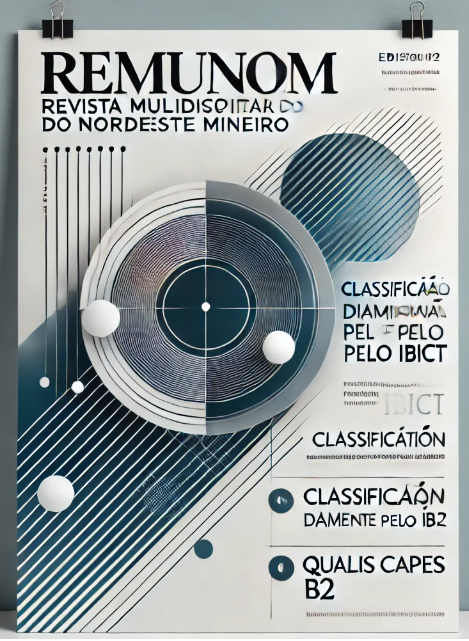TRANSPORTE HIDROVIÁRIO ESCOLAR NO AMAPÁ
DESAFIOS E PERSPECTIVAS PARA O ACESSO À EDUCAÇÃO EM COMUNIDADES RIBEIRINHAS
DOI:
https://doi.org/10.61164/rmnm.v9i1.3906Keywords:
Educação; Transporte escolar; Amapá; comunidades ribeirinhas; segurançaAbstract
For millions of Brazilian students, water transportation for school children is not an option, but the only way to access school. This study analyzes the dynamics of water transportation for school children in riverside communities in the interior of the state of Amapá, focusing on the perceptions of users, the weaknesses of the service, and possible improvements to ensure safe and dignified access to education and social justice. Given this problem, it was felt that there was a need to discuss and democratize information that would allow for an understanding of the point of view of users and the agencies responsible for managing this transportation in the state. The methodology was based on a qualitative and quantitative approach, with the help of documentary research and on-site visits, to better understand the indicators obtained in the interviews involving students, parents, teachers, and technicians from schools that depend on this type of transportation. The results demonstrate, with regard to the implementation of public policies aimed at water transportation for school children, the need for decentralized strategies that consider the socio-territorial specificities of the different regions that depend on this type of transportation. This approach must recognize the unique characteristics of local contexts, valuing the institutional capacities of states and municipalities. Thus, the study reinforces the urgency of integrated public policies that consider the specificities of the Amazon and ensure that children and adolescents remain in school through decent, safe and regular transportation.
References
ALVES, João Pedro Costa et al. Análise da efetividade do serviço de transporte escolar como fator de acesso à educação: o caso das ilhas de Belém-Brasil. Revista Delos, v. 18, n. 64, p. e4072-e4072, 2025.
BARDIN, L. Análise de conteúdo. São Paulo: Edições 70, 2011.
BRASIL. MARINHA DO BRASIL. DIRETORIA DE PORTOS E COSTAS. Normas da Autoridade Marítima para Embarcações Empregadas na Navegação Interior. (NORMAM-202/DPC). Brasília: Marinha do Brasil, 2023.
BRASIL. FUNDO NACIONAL DE DESENVOLVIMENTO DA EDUCAÇÃO (FNDE). Relatório de gestão do exercício de 2017. Brasília: FNDE, 2018. Disponível em: <https://www.fnde.gov.br/institucional/relatorios_gestao/fnde_relatorio_de_gestao_2017.pdf>. Acesso em: 29 abr. 2025.
BRASIL. FUNDO NACIONAL DE DESENVOLVIMENTO DA EDUCAÇÃO (FNDE). Programa Caminho da Escola: aquisição de embarcações escolares. Brasília: FNDE, 2019. Disponível em: <http://www.fnde.gov.br/programas/transporte-escolar/transporte-escolar-apresentacao>. Acesso em: 15 abr. 2025.
BRYMAN, A. Social research methods. Oxford: Oxford University Press, 2012.
COSTA, H. G. P.; LOMBA, R. M. Educação do campo e desafios amazônicos: o PRONERA no Estado do Amapá. Revista Exitus, v. 7, n. 3, p. 224-249, 2017.
FLICK, U. An introduction to qualitative research. 4. ed. London: Sage, 2009.
FRAXE, T. J. P.; PEREIRA, H. S.; WITKOSKI, A. C. Comunidades ribeirinhas amazônicas: modos de vida e uso dos recursos naturais. Manaus: EDUA, 2007.
GODOY, A. S. Pesquisa qualitativa: tipos fundamentais. Revista de Administração de Empresas, v. 35, n. 3, p. 20–29, 1995.
IBGE – INSTITUTO BRASILEIRO DE GEOGRAFIA E ESTATÍSTICA. IBGE Indígena. 2024. Disponível em: <https://indigenas.ibge.gov.br>. Acesso em: 28 mar. 2025.
MARCONI, M. A.; LAKATOS, E. M. Fundamentos da metodologia científica. São Paulo: Atlas, 2006.
MINAYO, M. C. S. O desafio da pesquisa social. In: MINAYO, M. C. S. (Org.). Pesquisa social: teoria, método e criatividade. Petrópolis: Vozes, 1994.
PORTOS E NAVIOS. Tráfego fluvial de passageiros entre portos no AP movimentou R$ 2,9 milhões em 2017. Portos e Navios, 18 dez. 2017. Disponível em: <https://www.portosenavios.com.br/noticias/navegacao-e-marinha/trafego-fluvial-de-passageiros-entre-portos-no-ap-movimentou-r-2-9-milhoes-em-2017>. Acesso em: 25 mar. 2025.
AMAPÁ. SECRETARIA DE ESTADO DA EDUCAÇÃO (SEED). Portal institucional. Disponível em: <https://seed.portal.ap.gov.br>. Acesso em: 26 mar. 2025.
VASCONCELOS, M. E. O. Educação do campo no Amazonas: história e diálogos com as territorialidades das águas, das terras e das florestas. 2017. Tese (Doutorado em Educação) – Programa de Pós-Graduação em Educação, Universidade Federal do Pará, Belém, 2017.
YIN, R. K. Estudo de caso: planejamento e métodos. Porto Alegre: Bookman, 2015.
Downloads
Published
How to Cite
Issue
Section
License
Copyright (c) 2025 Revista Multidisciplinar do Nordeste Mineiro

This work is licensed under a Creative Commons Attribution-NonCommercial-ShareAlike 4.0 International License.




